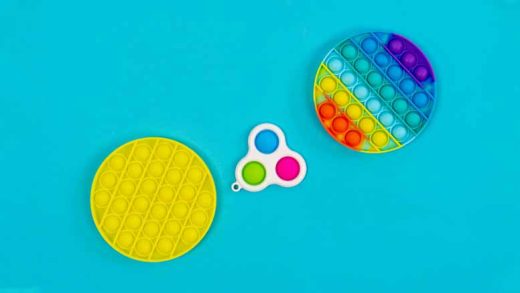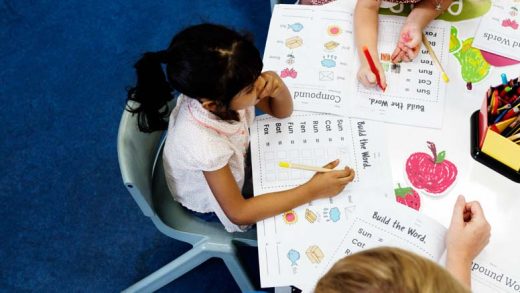Imagine a garden with colourful flowers, lush greenery and young saplings reaching out for the sun. Much like these saplings, your kid is growing and developing not only physically, but also mentally and emotionally.
Just as a sapling needs care to grow, your child, too, needs support. It is to build strong mental health and well-being!
Why is Good Mental Health Important?
Good mental health for kids isn’t just about the absence of problems. It has to do with your child feeling pleased, protected and also able to deal with life’s obstacles. It allows them to:
- Build healthy partnerships: They form strong bonds with friends and family. This promotes a sense of belonging.
- Learn & grow: They can concentrate in school, be involved with new ideas, and establish a love for understanding.
- Manage feelings: They can express themselves well and understand their emotions. They can recover from problems which ensures good mental health.
- Feel Confident: They develop a positive self-image, count on themselves, and are also willing to take risks.
Developing a Nurturing Environment
Think back to our garden analogy. Exactly how can you ensure your young saplings, your kids grow? Here are some essential methods to support their mental health:
- Unconditional love, safety and security: Let your kid recognise you love them no matter what. Create a safe space where they really feel comfortable expressing themselves easily.
- Open interaction: Talk honestly regarding feelings, both unfavourable along favourable. Motivate them to share their fears and also celebrate their successes.
- Favourable support: Focus on commending your kid’s effort and progress, not simply achievements. This constructs self-confidence, a growth mindset and good mental health.
- Healthy and balanced routines: Establish regular sleep timetables, mealtimes as well as playtime. Predictability offers a feeling of safety, security and consistency.
- Restrict screen time: Unstructured play and also time invested in nature are important for psychological growth and mental health. Urge creative play and outdoor activities.
Building Emotional Muscles
Just like exercise is to the body, there are methods to help your kid establish psychological strength:
- Encourage Problem-Solving: Guide your kid through challenges, help them brainstorm solutions and also establish coping approaches.
- Assist them in determining emotions: Use basic language to discuss feelings like satisfied, sad, upset & terrified. Storybooks plus role-playing can be useful tools.
- Teach healthy coping tricks: Deep breathing, and leisure techniques coupled with mindfulness workouts and mental health activities can aid kids manage stress and strong feelings.
- Lead by example: Children learn by observing. Practise healthy ways of sharing feelings and handling stress.
Learning with Fun: Your Key to Your Child’s Good Mental Health
Different age groups require different ways to learn and grow. Check out the table below:
Age Group | Fun Mental Health Activities | Benefits |
2-4 years old | 1) Sing tunes concerning feelings. 2) Read tales that discover various sensations. 3) Play basic board games that teach turn-taking and also complying with guidelines. 4) Engage in pretend play that permits them to reveal themselves artistically. | 1) It assists youngsters in identifying & understanding feelings. 2) These mental health activities promote social skills as well as emotional well-being. |
5-6 years old | 1) Create a “cool down edge.” It will have relaxing items like cushions and coverings. 2) Practise leisure strategies like deep breathing or dynamic muscle mass relaxation. 3) Encourage journaling or drawing to express their emotions. 4) Role-play or mimic various situations to assist them in establishing problem-solving abilities. | 1) These mental health tips offer a safe space for self-regulation. 2) It teaches coping mechanisms for managing stress & strong feelings. 3) Motivates self-expression coupled with psychological proficiency. |
The Power of Fun-based Learning in Fostering Positive Mental Health
Through play-based learning, you can ensure a nurturing environment where your children can thrive. There are many benefits of this technique:
- Play enables a mental expedition: Children can copy situations, show emotions, and solve problems in a safe and imaginative space.
- Play builds social skills: Kids learn teamwork, care, and how to talk through games.
- Play promotes cognitive growth: Play tasks can boost imagination and problem-solving. They also improve vital reasoning, a sign of good mental health.
- Play helps manage anxiety and feelings: Playing games lets your kids energise, and relax.
- Play builds confidence: Mastering new skills and overcoming challenges in play creates a feeling of success and self-worth.
When to Seek Professional Help?
In some cases despite having the very best initiatives, kids might battle with their mental health and wellness. Right here are some indicators to look out for:
- Determined withdrawal from social communication
- Changes in eating or sleeping habits
- Lack of concentration & learning
- Unexpected as well as frequent mood swings
- Self-harm or thoughts of self-destruction
If you’re worried about your child’s mental well-being, don’t hesitate to seek professional help. A specialist can give beneficial assistance and advice.
Learning begins at home and is further nurtured at school. The importance of fostering good mental health in children is non-negotiable. At Kangaroo Kids, the curriculum promotes good emotional and mental health, social skills development, and your child’s positive self-esteem.
Empower your child to grow into a healthy and resilient adult. You can do this by creating a supportive environment. You can teach healthy ways to learn and grow. And, you can seek help when needed!









